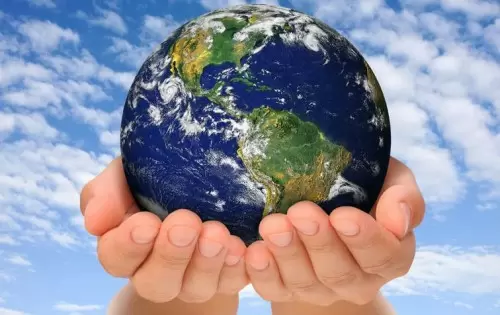While other states strive to create initiatives with lofty goals aimed at environmental protection and sustainability, Washington is one of a select few that's been putting initiatives to work and accomplishing goals while other parts of the country struggle to move past the planning phase.
With a concrete plan to transition the state to 100 percent clean energy by 2045 and Senate and House Bills paving the way for legislation to support it, Washington State will be a national model for clean, renewable energy, energy efficiency, and zero carbon.
While environmentalism and sustainability aren't anything new to Washington (more than 82,800 citizens here already work in the clean energy field), this type of statewide effort will be an enormous undertaking, calling on business, industry and state and local agencies to make a commitment to clean energy. Even some of the biggest names in business, including Starbucks and Microsoft, have made a commitment to transitioning to 100 percent clean energy to meet this goal.
This type of monumental mission will also call for experts in the field who can collect, study, and interpret data that'll be used to develop sound plans of actions to turn legislation into action. In short, there may be no better time than now to pursue your aspirations of a career in environmental science in the Evergreen State.
What Can I Do with an Environmental Science Degree in Washington
Realizing Washington State's goal of being completely sustainable by 2045 involves close collaboration between public, private, and nonprofit entities and the expertise of environmental scientists.
In the public sector, environmental efforts are overseen by the Department of Ecology, which assesses and monitors the environment and partners with agencies focused on producing clean air and water, managing waste, and reducing flood-related damages, among others. Then there's the Department of Natural Resources, which manages trusts to preserve the state's forests, water and habitat. Currently, the DNR manages more than five million acres of land that benefits state institutions, county services, and public schools.
Just a few of the nonprofits making their mark on the environment in Washington State include the Washington Environmental Council, EarthShare Washington, Washington Wild, and the Nature Conservancy. Their efforts often include research, advocacy, education, and action. For example, the Washington Environmental Council partners with more than 20 environmental groups to create the Environmental Priorities Coalition, which selects issues each year they hope to advance in the state legislature.
You may be surprised to learn that salaries for environmental scientists in Washington are almost as impressive as the profession itself. According to BLS statistics, the average, annual salary for environmental scientists and specialists was $86,420 in 2020. Similar job titles also came with competitive salaries, including geoscientists, at $94,740, hydrologists, at $93,040, and biological scientists, at $87,550.
2020 US Bureau of Labor Statistics salary figures and job growth projections for the professions listed reflect state data not school-specific information. Conditions in your area may vary. Data accessed September 2021.
Master's in Environmental Science in Washington
Graduate study in environmental science is your opportunity to advance in the field and gain expertise in a specific area of study. The University of Washington offers a host of graduate degrees in environmental science:
- MS in Aquatic and Fishery Sciences
- MS/Applied MS in Earth and Space Sciences
- MMA in Marine and Environmental Affairs
- MS in Quantitative Ecology and Resource Management
- MS in Atmospheric Sciences
- MEH/MFR/MS in Environmental and Forest Sciences
- MS in Oceanography
These graduate programs are part of the esteemed College of the Environment which puts more than $162 million in annual funding to work each year to conduct renowned research on natural resource management, climate, ecology, and marine, earth and space processes.
Washington State University also offers a nice selection of grad degrees in environmental science, including an MS in Environmental Science, an MS in Natural Resources Sciences, and an MS in Geology. Because of the interdisciplinary nature of these programs, students have the opportunity to collaborate with many of the university's research units, including the Center for Sustaining Agriculture and Natural Resources, the Social and Economic Sciences Research Center, the Department of Geological Sciences, the Laboratory for Atmospheric Research, and the State of Washington Water Research Center.
Bachelor's in Environmental Science in Washington
Earn a bachelor's degree in environmental science and you'll have the foundation needed for entry-level jobs in the field and for future graduate study.
Washington State University offers a BS in Earth and Environmental Sciences that includes your choice of major in Earth Science, Forestry, Environmental and Ecosystem Sciences, and Wildlife Ecology and Conservation Sciences. Just a few of the programs and facilities available to students of the university's School of the Environment include state-of-the-art labs, an on-campus outdoor teaching lab, captive wildlife facilities, and a geology museum.
The Evergreen State College also offers its share of undergraduate degrees in environmental science, including a BA/BS in Environmental Studies, which comes complete with your choice of specializations in agriculture, ecology, field studies, geology, hydrology, marine science, and natural history, a BA/BS in Sustainability Studies, and a BA/BS in Biology and Life Sciences.







